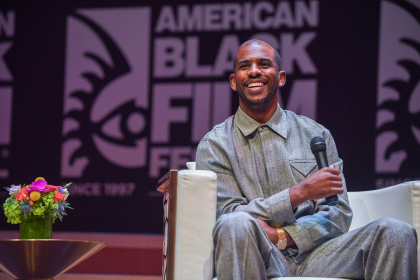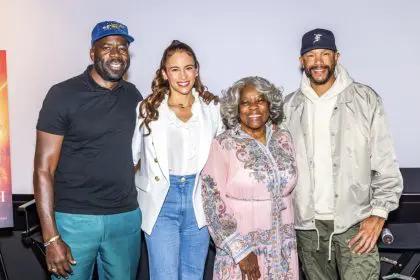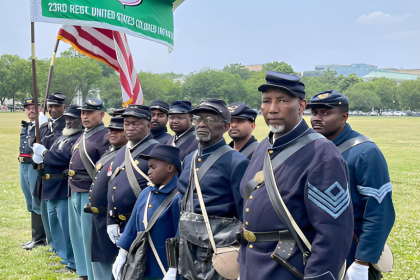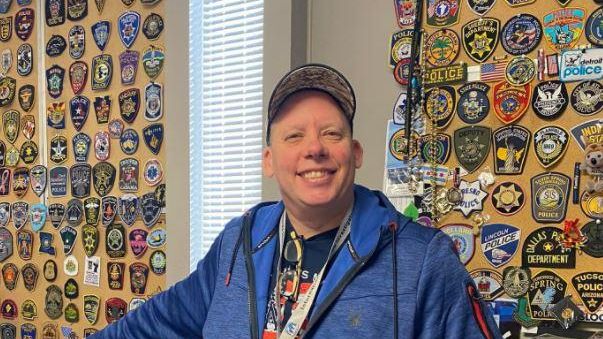
Solving crimes is a tedious process that requires, patience, diligence and experience. Solving murders can be even more difficult, especially for homicide detectives who face issues such as lack of cooperation, evidence tampering and fleeing suspects. Detective Jason White’s calm demeanor in interrogation rooms, his personable attitude, and his attention to detail make him one of the highlights of the A&E series, “The First 48.”
He has a high arrest and conviction rate, and follows his cases all the way through until sentencing. A true professional, White’s fair but firm stance shines through.
Detective White takes Zenger on a patrol through his career, his future interests, and much more.
Percy Crawford interviewed Jason White for Zenger.
Zenger: Any relation to the 2003 Heisman Trophy winner, Jason White from Oklahoma University?
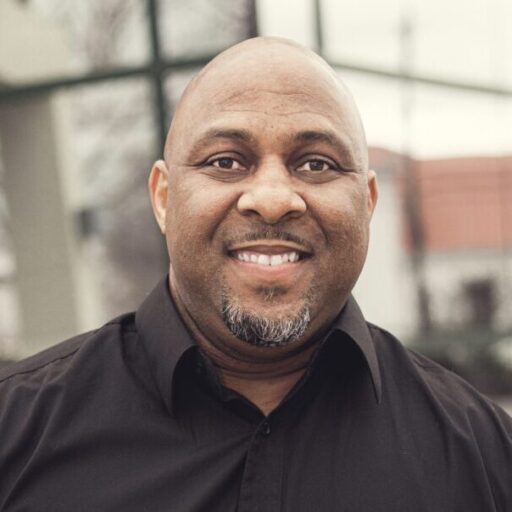
White: No, but we’re from the same state, and I’m a lot older. No relation, but it’s a good way to get people to remember my name.
Zenger: I have to be honest; I was completely oblivious to how dangerous of a city Tulsa, Oklahoma, is until I started watching “The First 48.”
White: Our numbers here, generally speaking, are around 60 to 70 homicides per year. Occasionally, we’ve had a few years when it eclipsed 80. Honestly, per capita, when you look at our population which is around 400,000, it’s one of your higher numbers per capita in the country.
It is a little bit surprising, and people often ask me, why is that? I don’t have a definitive answer as to why we have the number of homicides we have here. Considering how many we solve; you would think people would think twice about committing one here because the likelihood of them getting away with it is going to be pretty remote. I don’t really know what the deal is on that.
I encourage people to come here. Don’t get scared off from coming to Tulsa because of what you see on TV. If you come to Tulsa, what you’re going to find is a really nice city, a lot of things to do here, and the vast majority of the people that end up getting killed is primarily due to the lifestyle that they’re keeping. Occasionally, we do have a legitimate victim. Nobody should be victimized. But what I mean by that is individuals who are absolutely innocent victims. Those are very few and far between.
Zenger: Did you ever imagine there would be a lane for homicide detectives to be followed around and recorded during investigations on television?
White: The first thing that comes to mind when you ask that, do I think a show like “The First 48” is a show that you’re going to see on TV? The answer is, yes, because there are a number of shows that are out there, from “Cold Justice” to various other programs that are out there because murder is fascinating to most people. I find it fascinating. “The First 48” has been on TV since 2004, and it’s been running strong ever since. I’ve been a fan of the show since the onset of it.
I’m a little surprised that a show like “The First 48” would end up landing in Tulsa. I see where you’re coming from, you think big cities where they have a significant murder rate. You would think a show like that would be all over those cities. There are a few things that they are looking for. Number one, they are looking for cities with a pretty decent solve rate. I don’t think that show would really attract a lot of viewers if all they did was show cases where they weren’t solving them. The city got approached many years ago, they were interested in coming here, so in 2014 they made it official. That’s when they first started filming here and they have been here ever since.
Zenger: Getting an arrest isn’t where the door closes for you. You follow throughout the court proceedings and up to conviction. Why?
White: This is me speaking personally — I like to see it all the way through. You’ll find some detectives that once they make the arrest, they’ve had closure on it, in essence… there’s still going to be work to be done, but I think a lot of those guys kind of put the case to rest as far as, I’ve done my part, that’s it.
For me, I think I have a little bit more of a stress level that continues on through the case, through court proceedings, and really up until the time when we get a conviction. Ultimately, even later to make sure the things have been affirmed by the Court of Criminal Appeals. I try to make it to every single one of my court cases in reference to closing arguments. I’ll wait around with the family often times until they come back with a verdict. I try to hang out with them until this thing is finally put to rest. It’s a long process.
I think a lot of people don’t realize that, first off, these cases are relatively difficult from the onset, and then after that, we might get the story, and we might find witnesses, all of which will be really beneficial in court. But most of these people that are involved in the case to some extent don’t really want to meet with us the first time, let alone for one or two other visits to a courtroom. We’re constantly having to do what I would call witness management — finding people and trying to convince them that, “Hey, this is the right thing to do.”
And you have to remember in today’s day and age with social media like it is, you have witness intimidation that is just to a whole other level. People get blasted on some of these social media platforms that they’ve talked to the cops, or the defendant has released some of the documents that are a part of the case and part of the discovery and posted on there who is talking. We have to combat all of that on top of it.
Then, when you take that all into play, here in Tulsa, we have an exceptionally high rate of not only solving the cases, but we have an exceptionally high rate of getting convictions. I think one of the reasons for that is we have a good relationship with the Tulsa District Attorney’s office. We really work well together. I’ve seen it on other shows, such as “Dateline,” where they are working with a jurisdiction somewhere else in the U.S. where there is always this power struggle between the detective and the D.A.’s office. We just don’t have that here. We have a really good collaborative effort, and I think that plays into the success level we have here. I hope there are other places just like us.

Zenger: How has social media helped and hurt detective work?
White: Before I came to homicide, where I’ve been for about 12 and a half years, I actually worked in the crime scene unit for about a year and a half. I remember working in crime scene, and I didn’t have any social media accounts whatsoever. I worked at night. We were like the firefighters of that department, basically. We would respond to major crimes when they would call for us. We were assigned cases in the middle of the night, other than just assisting in a crime scene capacity.
I remember working that unit and all the other guys having MySpace pages. We didn’t have anything else to do other than sit there and read articles on the internet. I got a MySpace account, and I thought it was cool, I vowed to never get a Facebook account. I didn’t want anything to do with that. That was the time that I can remember, probably 2007–2008, I joined homicide in 2009.
That’s when I started seeing detectives becoming more active with social media outlets. Today, I can tell you that I try to utilize that to our advantage, and I have put some cold cases that we’ve had in the past, and I reprofiled them. I definitely want to do more of those. I reprofiled some cold cases and just talked for 3 or 4 minutes about a specific case from years ago just to put it out there. And I do that because, it’s like doing a canvas from door to door, and it’s reaching tens of thousands of people.
It’s amazing the reach that it has. It hasn’t solved a case yet… at least here, anyway. But I can tell you, the families love it because it shows that we still care about those cases. But also, we have gotten several tips from profiling a case or two on there, and it’s given us leads to at least go out and knock on some doors, talk to some people and see if we can move the case forward. I think that’s the wave of the future. It’s something that needs to be explored more. That’s the positive thing about it. There are some great things you can do with social media. But as I mentioned earlier, witness intimidation and such things are negatives.
Zenger: Your calm demeanor is the interrogation room is commendable. Does that come with experience or are you just a natural people person and it translates during your interviews?
White: In addition to working in the detective division, I actually was a crisis negotiator for a little over 10 years. In saying that, you get inundated with active listening skills and communication skills. Here in our department, they spend a tremendous amount of time with the cadets in our academy teaching active listening skills and communications skills in general to a variety of different customers, from individuals suffering from mental illness to the run-of-the-mill crisis situations.
I appreciate what you’re saying and any compliment you want to throw my way, but I think everybody in our unit, and I’m sure other units that exist in the police department, who are exceptional interviewers. There are guys that have probably never worked in the detective division, that work the streets that just have the ability to talk to individuals. One of the things for me — and it seems to get better with age — I just get nicer (laughing). I just don’t sweat the small stuff anymore. I try to just treat people right.
One of the things that I teach young cadets is I’ll see them do a scenario when they are talking to somebody, and they’re in that cop mode. I’ll ask them, “How would you talk to that individual if it was one of your family members in crisis, or in a situation when they just witnessed something horrific?” And they would be like, “Well, I would do this-this-this-and this.” Well, just do it.
We’re not building a rocket here. We’re just talking to someone you need to get information from and put them at ease. The other thing that we combat a little is you’re dealing with a generation who has had a lot of contact with the police, so you may have some that have generational hatred toward the police. When they finally end up meeting you, it’s like, “You’re not that bad after all.” If I was bad, my name would be known in the streets as being that guy. The reputation that you get out in the communities that you serve, if you’re one of those evil dudes out there doing bad stuff, it’s not going to take long for your name to get out on the streets about that.
A lot of these individuals who are asked to put themselves out there don’t have the financial means to move. They don’t have the ability to get away from this element that they are around. I call it intimidation domestic terrorism, and a lot of these individuals are dealing with that. Certain neighborhoods are controlled by those intimidators. You have to combat that by finding those individuals willing to do the right thing. They are heroes to me. They have a lot of courage and if they come forward and tell us the truth, they literally are heroes, and not just for the victim but for the community.

Zenger: 48 hours in not a lot of time. Why are those first two days so important during investigative work?
White: I can give you the preface of the show, defense attorney’s like to throw this out there, “Isn’t it true, detective that you’re supposed to make an arrest within the first 48 hours?” It has nothing to do with any of that. What the first 48 hours thing comes from, it goes way back, long before this show existed. It goes back to detectives’ philosophy that if you don’t get a lead within the first 48 hours, then the chances of you moving this case forward and possibly solving it is going to go down dramatically.
I do think there is some truth to that. I think if you don’t strike while the iron’s hot, you might miss out on the potential of video surveillance. In some instances that stuff disappears within 24 hours, some it can be three days, it can be a month.
There is a show on Amazon called “Bosch.” It’s about a homicide unit, LAPD, and one of the best things about it is one of the lead characters on that show has a sign next to his desk that says, “Get off your ass and go knock on some doors.” It couldn’t be truer than that. If the public wants to know how we solve these cases, it’s generally not from DNA and fingerprints.
I’ve been assigned to close to a hundred homicides straight out of the gate, and I’ve assisted on about 500 other ones. I can think of a couple of occasions where a fingerprint has led us to the identity of the perpetrator when we had no idea who the person was. I can think of a couple of other occasions where we had no idea who this person was, and their DNA led us to the identity of this individual. It just doesn’t happen very often.
What leads to our success is a couple of things, and number one is teamwork. The key in Tulsa is, we all attack these cases together. Number two is your ability to be able to communicate with the public. If you can’t do that, you won’t get very far.
Here in Tulsa, we have the luxury of really good people who live here. But you’re from Louisiana, and if you were to go to New Orleans — and I’m sure the detectives there would agree with this — the demographics are very different. Down there, people are not going to talk to the police. It just does not happen. It has nothing to do with them not wanting to solve those cases. It’s the fact that for the people down there, it is ingrained in them that you don’t talk to the cops. Here, it’s not completely opposite, because everyone tries the “I don’t know anything.” We get lied to all the time, but the demographics here are just easier than it is in other cities like Chicago, New Orleans, and L.A.
Zenger: What would you be doing if you weren’t in law enforcement?
White: That’s a good question. There’s always other things that I want to do. I’m really too old to be exploring certain jobs. I would have loved to be a firefighter. I always thought it was fascinating, and everybody likes them. I’ve always considered going back and getting a nursing degree and being a traveling nurse. I don’t know if I would be able to do that or not. We’ll see. I’ve always enjoyed helping people.
Also, in some way or another, I’d like to do something in the world of teaching. I teach police officers, along with a lot of kids in high school and college about what we do. I thoroughly enjoy being an ambassador for this profession. I enjoy getting people to see us without the preconceived negative notion about police. Letting them know who we really are. I think 99.9 percent of cops out there are really trying to help people. It’s a constant battle, and we have to work that much harder when one cop does something stupid.
Edited by Matthew B. Hall and Kristen Butler
Recommended from our partners
The post A Day In The Life Of ‘The First 48’ Homicide Detective Jason White appeared first on Zenger News.

